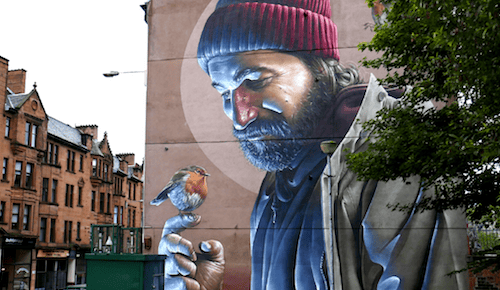
On 25th of April, the Open European Day (OED) took place for the fifth time in Bonn, confirming the event to be an important place for European cities to discuss Urban Resilience.
During the one-day event organized by the European Environment Agency (EEA) and ICLEI – Local Governments for Sustainability, more than 150 practitioners coming from local, national and EU authorities as well as from consultancies and research organisations working in and with cities for increasing urban resilience. The 2018 meeting showed that some progress is being made by European cities, as the contributions to the debate were more than in past events the result from practical experiences and focused on many questions related to implementation of adaptation measures. Yet the need for exchanging knowledge among cities and creating new forms of collaboration across different policy levels and with stakeholders was tagged as a crucial issue to be addressed also in the coming editions of the OED.
Since some years Margaretha Breil from CMCC is part of the organizing team of the event in the framework of ETC/CCA project activities, and being task manager on urban and social aspects of adaptation, she has prepared and facilitated a session on the role of cultural heritage in adaptation processes.
Experiences from Glasgow (UK), Edinburgh (UK), Bologna (Italy) and Guimarães (PT) provided food for discussion for participants, highlighting how important material cultural heritage is for increasing identification of citizens with their place and creating a sense of being part of a city, a basic condition for increasing resilience. Buildings and urban areas which are part of cities’ cultural heritage are often more difficult to be adapted to climate threats and to new energy standards because of specific constraints defined by conservation rules, as Jorge Cristino from the city of Guimaraes reported, and due to the impossibility to change the urban space in protected areas, as Giovanni Fini describes referring to the centre of Bologna. Historic built and green features of urban landscape can, in some cases, also inspire innovative solutions, as Ben Twist from Creative Carbon Scotland reports from Edinburgh referring to the portrait gallery situated in a historic building which is well able to provide stable climatic conditions protecting the inside art work without recurring on climatization. Also Gillian Dick from the Glasgow city planning office described that historic buildings in her city are well oriented with respect to local winds and have smaller windows and small gardens, being thus often better adapted to local climate; nevertheless, adaptation challenges are related often to the need for behavioural changes (referring for example to the urban space needed for private car parking).
It became clear throughout this discussion that the importance of cultural heritage for increased urban resilience does not consist only of monuments, but that immaterial elements of cultural heritage and cultural activities can contribute as much to transforming cities to more resilient places as physical transformation, as they transport innovation, and create new and innovative practices.
Also in Bologna, the need for taking care of cultural heritage in the historic centre triggered action not so much in terms of physical adaptation, but in collaborative and participative action aiming at increasing sustainability and reconciling different and partly conflicting uses. Giovanni Fini from the city of Bologna described the activities undertaken in the ROCK project (H2020) which will increase livability of central urban spaces for all citizens. The work of artists and cultural initiatives can thus contribute to creating more sustainable and resilient cities, resolving a key challenge of climate action “change how we do things, involve more actors and influence the future we will be living in in a creative way”.
The importance of climate change for local governments and the increasing need to monitor the performance of related initiatives was the subject of the session on “Monitoring and evaluation for urban adaptation” coordinated by CMCC researcher Eleni Karali (RAAS Division), which gave four panellists the opportunity to share their experience and knowledge of the processes:
- Matt Ellis, Climate resilience officer from the Greater Manchester Combined Authority (UK), described the wider monitoring and evaluation programme of the Greater Manchester and explained the way that adaptation is embedded in it;
- Marie Gantois, Adaptation officer from Paris (FR), provided a brief overview of the progress that the city has made in climate change adaptation policy, focusing especially on the development of indicators to track progress in the implementation of adaptation measures;
- Aphroditi Bouikidis, Urban and social innovation consultant, and Georgios Dimarelos, Deputy Mayor for urban resilience and development programmes, presented their views on M&E, drawing from their experience with the recently adopted Resilience Strategy of the City of Thessaloniki (GR).
More information on the session is available here.
The ETC/CCA – European Topic Centre on Climate Change impacts, vulnerability and Adaptation is a Consortium of European Organizations contracted by the European Environment Agency (EEA) to carry out specific tasks in the area of climate change impacts, vulnerability and adaptation across Europe. The ETC/CCA is coordinated by the CMCC Foundation since 2011, the current coordinator being the researcher Silvia Medri (Risk Assessment and Adaptation Strategies (RAAS) Division).
The European Environment Agency (EEA) is an agency of the European Union, whose task is to provide sound, independent information on the environment. The EEA aims to support sustainable development by helping to achieve significant and measurable improvement in Europe’s environment, through the provision of timely, targeted, relevant and reliable information to policymaking agents and the public.


